Notorious PhD
- Show more sharing options
- Copy Link URL Copied!
There are times when Todd Boyd’s persona -- the tenured professor as hip-hop artist -- is irresistible.
There he is, 6-foot-2, 250 pounds, in shades and wearing a blue Orlando Magic jersey over a gray T-shirt, striding back and forth before 150 USC students in his “Hip-Hop Culture” class, holding their gaze for 90 minutes, working without notes, punctuating his deep-voiced pronouncements about Nas or Notorious B.I.G. or Marvin Gaye with snatches of their music, moving to a corner of the room each time a track starts, contemplatively mouthing the lyrics.
Did you hear the common theme of desperation? he’ll ask the students when it’s quiet again. Did you hear Biggie from ’93 remembering how, back in the day, parents used to take care of us, but now they’re just scared of us? Did you catch that refrain from Grandmaster Flash’s “The Message” in ‘82: “It’s like a jungle sometimes; it makes me wonder how I keep from goin’ under.” Did you get the way Marvin foreshadowed all this back in ’71 in “Inner City Blues,” when he moaned: “Make me wanna holler: What they do my mind?”
There are times when Boyd’s ability to connect the dots is both audacious and smoothly persuasive.
There he is, in the same class, listing the social forces that shaped rap: the ‘70s oil embargo, Japanese car imports, U.S. auto plant cutbacks, school integration and white flight and a shrinking urban tax base, drug dealing, Ronald Reagan’s war on labor unions, cuts in social programs -- think about this, he injects with total certitude: Were it not for cuts in school-music funding in the ‘70s, the first generation of rappers would have been accompanied by instruments; they wouldn’t have had to sample other tracks.
And there are times when Boyd crosses the line into, well, into Todd Boyd territory, where most academics fear to tread.
There he is, describing Reagan in class as “America’s version of Adolf Hitler ... a sad-ass actor” who was as qualified for office as Adam Sandler. “He was white in the worst possible way.”
There he is, claiming in a new book that hip-hop is more relevant to contemporary black life than the civil-rights movement. Adopting hip-hop’s confrontational spirit, the book proclaims: “Frankly I love the word ‘nigga.’ It is my favorite word in the English language because no other word incites more controversy today.”
There he is, cautioning students not to raise their hands until the end of his lecture because “when I get into my groove, I’m like in a different space; I don’t like my groove to be interrupted.”
Boyd, 38, has a PhD in critical studies from the University of Iowa. He is the co-writer of a reasonably successful 1999 film, “The Wood”. He has finished another book (his third), due in October, on the social impact of hip-hop and basketball. He is perpetually in demand by reporters to pass judgment on everything about race from pimp fashion to radio programming to the historical validity of a mysterious black caddy in “The Legend of Bagger Vance.”
He is knowledgeable, engaging and independent minded.
He is also an egomaniac, an iconoclast and an intellectual hedonist.
“A lot of people,” he says good-naturedly, “can’t make sense of me.” Boyd has taught at USC’s School of Cinema-Television for a decade. He says it was upon winning tenure six years ago that he decided to follow his instincts, figuring he had nothing to fear. This coincided roughly with the rise of hip-hop -- loosely defined as rap music and its styles of fashion, language and self-assertiveness -- in American pop culture. “This is very personal,” he says. “I’ve seen hip-hop from the beginning; it’s always been part of my life.” He says the first rap record he heard as a 10th-grader in Detroit (“Rappers Delight,” 1979) moved him more than any filmed speech by Martin Luther King Jr. he ever saw. (“I was the first one of my friends who learned it word for word -- the eight-minute version.”)
Hip-hop has not only overturned the record business (rap has outsold country music for the past five years), it has filtered into some remarkably unlikely places. It’s not just that Kobe Bryant can’t get a big Reebok shoe contract because, according to some industry experts, his mannerisms are too polished -- lacking, in hip-hop parlance, “street cred.” It’s that Dr. Scholl’s now runs a TV commercial for its gel insoles in which actors -- all but one of them white, mind you -- exude pleasure in “gellin’ ” (as in “chillin’ ”) -- even, in one actor’s embarrassing attempt at street cred, “gellin’ like a felon.”
Scores of professors in fields from linguistics to anthropology to history have integrated hip-hop into their classes or, more recently, begun devoting entire classes to it. But no other nationally known academic has gone further than Boyd in adapting hip-hop’s mannerisms.
“I wish I was a rapper” are the first words of his new book, “The New H.N.I.C: The Death of Civil Rights and the Reign of Hip Hop” (New York University Press). “There are certainly times,” he continues, “when I wish I could just drop an album and channel all my ideas, anger, humor and energy into some music and be done with it.”
A few pages later, he is talking about his competitiveness, how he’d love to “battle” it out with Michael Eric Dyson, the 44-year-old University of Pennsylvania professor of religious studies who, like Boyd, likes to bolster his viewpoints on some social issues by quoting hip-hop lyrics but is held in higher academic esteem and is the author of eight books. “I got mad love for my nigga, Mike D,” Boyd writes, “his skills are without question but the competitor in me wants to show everybody who really holds it down.”
Boyd moves breezily through life as a provocateur, dropping what he calls “intellectual bombs,” reveling as much in the flow of his words as the structure of his arguments, convinced his style forces people to think. He dismisses the more torturous process of academic inquiry as “books with 3 million footnotes and another 30 million cross-references.” He is fond of comparing himself to Michael Jordan -- in this case, suggesting that his years of study at traditional Iowa paralleled Jordan’s college days, when Jordan’s brilliance was masked by a disciplined coaching system until he threw off the shackles in the NBA -- the same way Boyd threw off his when he got tenure.
“When Jordan was in his prime, he could take some chances that other players couldn’t take, because he knew he could recover from it. I feel like that. I have confidence in my game and I’m willing to go out and shake things up, and I can deal with the fallout.”
Some students credit Boyd with helping them see the world differently. Nate Dumas, a junior USC anthropology major who plans a career as a filmmaker, was impressed when Boyd used an argument between parents and teachers in John Sayles’ “Lone Star” to talk about accepted versus alternative history. “It made me think about who gets to tell it.” Boyd’s talent for news-media visibility has also helped USC present itself as a more diverse campus.
Yet Boyd has drawn silent contempt from more traditional colleagues at USC and other institutions, who regard him as light on scholarship or too publicity hungry. Some refuse to acknowledge him. (“I respectfully withdraw my name from any further public discussion of Todd Boyd,” e-mailed one learned East Coast professor who specializes in hip-hop.)
The title of Boyd’s new book epitomizes his love of intellectual mischief.
“H.N.I.C.” stands for “Head Negro in Charge,” a sardonic phrase rooted in the days of segregation. Blacks used it -- and, on occasion, still do -- to taunt a compliant black employee elevated by the white power structure. Boyd intends you to read the title in its hip-hop vernacular, “Head Nigga in Charge.”
“Nigga,” he says, careful to use that spelling, which he finds far less toxic, is his favorite word for two reasons. First, because our tendency to ban the word from polite conversation lets people fool themselves into thinking racism has disappeared. And second, “any time anybody tells me there’s something I can’t say, you can be sure I’m going to say it as many times as I possibly can.”
And with that, over dinner at one of his favorite Italian restaurants in Brentwood, Boyd smiles at his self-analysis. His is not the story of a man carrying the weight of race on his back. He was raised by affluent parents who, he said, made sure he read Esquire as well as Ebony. He was 4 when King was assassinated and the civil-rights movement froze in its tracks. “My parents talked about [the importance of the movement], but it didn’t affect my life in a personal way.”
He identifies with younger African Americans who are emotionally removed from the days when a black person had to conduct himself with a worried eye toward what whites might think, whether they might apply their impression of him to the race as a whole. He is more comfortable with the independent, express-yourself sensibility of hip-hop, the way it challenges the mainstream and keeps changing whenever society catches on. His ‘60s heroes are Malcolm X and “those jazz musicians -- Miles, Monk, Coltrane -- who were traveling through Europe, creating culture, having fun.”
The civil-rights movement, Boyd maintains, fostered a stifling, “pious,” “Sunday school” code of conformist behavior. “Hip-hop,” he writes in “H.N.I.C.,” “offers new ways of seeing and understanding what it means to be black at this pivotal time in history.”
Boyd saw an example of this generation gap last fall when several black leaders rose up to criticize the comedy “Barbershop” for one character’s exaggerated rant against civil-rights icons, including Rosa Parks. “Old-school civil-rights figures like Jesse Jackson and Al Sharpton contend that the sacred cows of their time, namely Martin Luther King Jr. and Rosa Parks, are above criticism and should be regarded as something akin to deities,” he wrote in a commentary for The Times. “The new-school hip-hop generation exists with a mandate to ‘keep it real’; this has to do with embracing a hard-nosed truth about the world and letting the chips fall where they may.”
Robin Kelley, chair of the New York University history department and a specialist in African American history, says Boyd is right to demand that more attention be paid to a younger generation of black thinkers. But Kelly says the thesis of “H.N.I.C.” falls apart as little more than “a polemic, designed to inspire debate.” Most reviewers have agreed (“Boyd doesn’t want to analyze; he wants to riff,” a Times reviewer wrote), although some have praised Boyd’s audacity in making the case for why hip-hop matters.
The thin volume is heavy on slang and hip-hop sensibility, laced with occasionally boastful details about Boyd’s career climb. (“When the lecture was over, I knew I had rocked the house ... “) It toys with the way hip-hop culture is increasingly a model for interpreting America, right down to what Boyd calls President Clinton’s flamboyant “pimp walk” to the stage of the 2000 Democratic presidential convention. It is outraged by black knee-jerking, such as the time “all of the prominent L.A. niggas lined up” behind James K. Hahn in the 2001 Los Angeles mayor’s race, spurning a coalition with candidate Antonio Villaraigosa, simply because Hahn’s father had been popular with blacks.
NYU’s Kelley, two years older than Boyd, is put off by the rapper-like style. “There’s this presumption that the rap itself is enough, that there’s a great lyrical flow that’s operating. But the kind of lyrical flow we associate with hip-hop is not the same as scholarship.... When there’s verbal sparring between rap artists on stage, that’s about who has the greater stylistic ability.”
Growing up in a high-rise in the Lafayette Park section of Detroit, Boyd imagined himself as a basketball coach (his game was lacking), then a TV sportscaster like Bryant Gumbel. He says he went to the University of Florida and flunked out before righting himself and developing an interest in critical studies -- where else, he figured, could you watch movies for college credit? Around this time his father, a real estate appraiser, gave him a copy of Malcolm X’s autobiography, which awoke him intellectually. Every time he walks before an audience, Boyd says, his role models are Malcolm and the revered, late comedian Robin Harris, two men whose grasp of the world made them simultaneously incisive, entertaining and fearless.
After earning his master’s and PhD at Iowa, Boyd taught a year at the University of Utah, then was hired by USC in 1992 as an associate professor. One of his first students, Rick Famuyiwa, who wound up co-writing and directing “The Wood,” fondly remembers the silence in the classroom the day Boyd began a lecture by firing a one-syllable obscenity at “Forrest Gump,” arguing the film took liberty with history to facilitate its hero’s odyssey. Boyd was also capable of suggesting that “Roger Rabbit’s” Toon Town was the model of a racially segregated society, Famuyiwa said.
“His style forces students to actively participate in the class as opposed to just sitting back,” says Famuyiwa, who developed “The Wood” as a story about growing up in Inglewood and is working on another film project with Boyd. “He’s one of a kind.... He’s brilliant.”
USC professor Michael Dear, director of the university’s Southern California Studies Center, says Boyd’s use of rhetoric is an honorable technique and should not be held against him. “He can write academic jargon, he can do jive. He can do rap and Shakespeare. He’s a wordsmith.”
Boyd, who lives in a downtown L.A. high-rise with his girlfriend, Sonja Steptoe, a Time magazine senior correspondent, is most compelling when he uses history to demonstrate that rap is not a pathology, but another link in the development of African American music.
In a recent hip-hop class devoted to improvisation, he takes the class backward to the jazz tradition. (“In classical music, love is based on bitin’ -- imitation. It’s not based on interpretation. A jazz musician, if he plays someone else’s song, has a responsibility to make a distinct and original statement.”) He plays the fabled “blue” comic Rudy Ray Moore to illustrate “toasting,” the talent of piling one tall tale upon another. He talks about jazz “cutting sessions,” where musicians tried to outdo each other. He pulls all those competitions into today’s freestyle “battle raps.” He describes, in great detail, a fabled moment in the 1991 NBA Finals when Jordan appeared to stop in midair, shifted the ball from right hand to left and made a shot no other player could have imagined. It was a classic example of “taking the music and make it yours,” he says.
“Now, you may be used to taking classes from these professors who read from notes,” Boyd says playfully, eliciting a couple of audible sighs of agreement from the audience.
“What happens with the good doctor is,” he says, pointing to his head, “it’s all up here. Just like jazz. Just like hip-hop.”

More to Read

As Mandisa death investigation proceeds, police are seeing no signs of foul play
April 23, 2024

Taylor Swift turns heel, owning her chaos and messiness on ‘The Tortured Poets Department’
April 18, 2024

Legislation banning TikTok is coming this week. How will it affect the music industry?
April 24, 2024
The biggest entertainment stories
Get our big stories about Hollywood, film, television, music, arts, culture and more right in your inbox as soon as they publish.
You may occasionally receive promotional content from the Los Angeles Times.
More From the Los Angeles Times

Entertainment & Arts
Ashley Judd, Aloe Blacc open up about deaths of Naomi Judd, Avicii in White House visit

Kid Cudi cancels tour: Ankle broken at Coachella is ‘much more serious,’ needs surgery

Stagecoach 2024: Goldenvoice’s Stacy Vee on country music’s moment in the sun

Megan Thee Stallion, Roc Nation sued by personal cameraman, who makes a provocative allegation

- Politics & Social Sciences
- Social Sciences

Enjoy fast, free delivery, exclusive deals, and award-winning movies & TV shows with Prime Try Prime and start saving today with fast, free delivery
Amazon Prime includes:
Fast, FREE Delivery is available to Prime members. To join, select "Try Amazon Prime and start saving today with Fast, FREE Delivery" below the Add to Cart button.
- Cardmembers earn 5% Back at Amazon.com with a Prime Credit Card.
- Unlimited Free Two-Day Delivery
- Streaming of thousands of movies and TV shows with limited ads on Prime Video.
- A Kindle book to borrow for free each month - with no due dates
- Listen to over 2 million songs and hundreds of playlists
- Unlimited photo storage with anywhere access
Important: Your credit card will NOT be charged when you start your free trial or if you cancel during the trial period. If you're happy with Amazon Prime, do nothing. At the end of the free trial, your membership will automatically upgrade to a monthly membership.
Buy new: $15.00 $15.00 FREE delivery: Wednesday, May 1 on orders over $35.00 shipped by Amazon. Ships from: Amazon.com Sold by: Amazon.com
Return this item for free.
Free returns are available for the shipping address you chose. You can return the item for any reason in new and unused condition: no shipping charges
- Go to your orders and start the return
- Select the return method
Buy used: $12.24

Download the free Kindle app and start reading Kindle books instantly on your smartphone, tablet, or computer - no Kindle device required .
Read instantly on your browser with Kindle for Web.
Using your mobile phone camera - scan the code below and download the Kindle app.

Image Unavailable

- To view this video download Flash Player
Follow the author

The Notorious Phd's Guide to the Super Fly '70s: A Connoisseur's Journey Through the Fabulous Flix, Hip Sounds, and Cool Vibes That Defined a Decade Paperback – June 12, 2007
Purchase options and add-ons.
- Print length 222 pages
- Language English
- Publisher Crown
- Publication date June 12, 2007
- Dimensions 5.5 x 0.56 x 8.5 inches
- ISBN-10 0767921879
- ISBN-13 978-0767921879
- See all details

Frequently bought together

Customers who viewed this item also viewed

Editorial Reviews
From booklist, about the author, excerpt. © reprinted by permission. all rights reserved., product details.
- Publisher : Crown; 1st edition (June 12, 2007)
- Language : English
- Paperback : 222 pages
- ISBN-10 : 0767921879
- ISBN-13 : 978-0767921879
- Item Weight : 7 ounces
- Dimensions : 5.5 x 0.56 x 8.5 inches
- #341 in TV History & Criticism
- #1,972 in Arts & Photography Criticism
- #2,387 in African American Demographic Studies (Books)
About the author
Discover more of the author’s books, see similar authors, read author blogs and more
Customer reviews
Customer Reviews, including Product Star Ratings help customers to learn more about the product and decide whether it is the right product for them.
To calculate the overall star rating and percentage breakdown by star, we don’t use a simple average. Instead, our system considers things like how recent a review is and if the reviewer bought the item on Amazon. It also analyzed reviews to verify trustworthiness.
- Sort reviews by Top reviews Most recent Top reviews
Top reviews from the United States
There was a problem filtering reviews right now. please try again later..

Top reviews from other countries
- Amazon Newsletter
- About Amazon
- Accessibility
- Sustainability
- Press Center
- Investor Relations
- Amazon Devices
- Amazon Science
- Sell on Amazon
- Sell apps on Amazon
- Supply to Amazon
- Protect & Build Your Brand
- Become an Affiliate
- Become a Delivery Driver
- Start a Package Delivery Business
- Advertise Your Products
- Self-Publish with Us
- Become an Amazon Hub Partner
- › See More Ways to Make Money
- Amazon Visa
- Amazon Store Card
- Amazon Secured Card
- Amazon Business Card
- Shop with Points
- Credit Card Marketplace
- Reload Your Balance
- Amazon Currency Converter
- Your Account
- Your Orders
- Shipping Rates & Policies
- Amazon Prime
- Returns & Replacements
- Manage Your Content and Devices
- Recalls and Product Safety Alerts
- Conditions of Use
- Privacy Notice
- Consumer Health Data Privacy Disclosure
- Your Ads Privacy Choices
- Skip to Nav
- Skip to Main
- Skip to Footer
.css-15opob5{left:0;position:absolute;top:0.8rem;} All Episodes
.css-14f5ked{margin:0;word-break:break-word;display:-webkit-box;-webkit-box-orient:vertical;box-orient:vertical;-webkit-line-clamp:2;overflow:hidden;} the notorious phd: dr. todd boyd.
Explore the depths of hip-hop's transformative power with Dr. Todd Boyd, the "Notorious PhD," as he takes us on a 50-year journey through the genre's history in his latest book, "Rappers Deluxe: How Hip Hop Made the World." As a pioneer in the academic study of hip-hop and a true devotee of the culture, Dr. Boyd offers an authentic narrative that weaves together the evolution of this dynamic art form with its undeniable influence on politics, fashion, and the arts. From the golden age greats to the "vibe era" voices of today, we reflect on hip-hop's role in shaping societal discourse and the unique ways it's been used as a tool for social advocacy. Join us for a candid conversation that goes beyond the beats, dissecting the complexities of race, politics, and cultural appropriation within the music industry. We tackle head-on the notion of sneaker culture's influence on voting behavior and laugh at the absurdity of requiring permission slips for children to experience African American literature. The conversation on Eminem's influence in hip-hop sparks a provocative debate on the rapper's place in music history, as we contend with the nuances of his artistry, impact, and the endorsement that propelled his career. Cap off this episode with an exclusive glimpse into my personal journey through the world of hip-hop, from documentaries to book adaptations. Learn about the passion driving my diverse roles as a writer, public speaker, and educator. As we close out with reflections on the intersections of hip-hop with basketball and more, you'll discover the far-reaching tentacles of this cultural leviathan – a force that has left an indelible mark on our world. This isn't just another hip-hop homage; it's a masterclass in the genre's history, influence, and legacy. The Notorious PhD, Dr. Todd Boyd is a Professor of cinema and media studies, a renowned speaker, an in-demand television commentator and documentarian, a critically acclaimed author, and the one and only Hip-Hop professor at the University of Southern California. #drtoddboyd #hiphop #hiphopculture #notoriousphd #black #toddboyd Topics Discussed:
- His new book "Rappers Deluxe: How Hip Hop Made The World"
- Eminem - Is he a guest in the house of Hip-Hop?
- Hip-Hop's evolution the past 50 years
- His top 5 basketball players of all time and why Lebron isn't on his list
- His top 5 rappers of all time
Dr. Todd Boyd's Instagram - Dr. Todd Boyd (@notoriousphd) • Instagram photos and videos Buy Dr. Boyd's new book - Rapper's Deluxe | Fashion and Pop Culture | Store | Phaidon
Support the show
Thanks for listening! Please follow us on all our socials! YouTube Facebook Twitter TikTok Pinterest Instagram
Popular Podcasts
.css-r6mb8g{margin:0;word-break:break-word;display:-webkit-box;-webkit-box-orient:vertical;box-orient:vertical;-webkit-line-clamp:1;overflow:hidden;} Dateline NBC
Current and classic episodes, featuring compelling true-crime mysteries, powerful documentaries and in-depth investigations.
Death, Sex & Money
Anna Sale explores the big questions and hard choices that are often left out of polite conversation.
Stuff You Should Know
If you've ever wanted to know about champagne, satanism, the Stonewall Uprising, chaos theory, LSD, El Nino, true crime and Rosa Parks, then look no further. Josh and Chuck have you covered.
© 2024 iHeartMedia, Inc.
- Privacy Policy
- Terms of Use
A Conversation With Dr. Todd Boyd on Race, Pop Culture And Equality
Some americans feel that they're part of the larger solution because they embrace black culture, particularly in music, but dr. todd boyd explains that there's more to working toward racial equality., by michael brownlee • published june 19, 2020 • updated on june 20, 2020 at 1:59 am.
Across America’s dinner tables, marches, roll calls, city halls and board rooms, racial justice is being discussed in ways that are personal, national and cultural. In a conversation with NBCLA's Michael Brownlee, Dr. Todd Boyd took a look at the disparity between embracing Black culture, and music in particular, in a country that continues to struggle with inequality.
“There needs to be the type of change that’s not going to happen overnight. A lot of people are going to be made uncomfortable with this and they are going to have to find a way to get comfortable in the discomfort if anything is going to move forward,” Dr. Todd Boyd said.
Dr. Boyd is Chair of the Study of Race & Popular Culture at USC, and he’s studied the relationship between the two since arriving in LA following the 1992 riots.
Many conversations about race include the idea of being “color-blind,” but Dr. Boyd says that is a problem because it “wipes away part of someone’s identity.” Instead, we need to see people for who they are.
“We cannot move beyond race. It’s such an integral part of this country’s history, such an integral part of this country’s culture,” he said.
The author and producer, also known as the “Notorious PhD,” was recently seen in “The Last Dance” on Netflix and appeared in the Oscar-winning documentary “Twenty Feet From Stardom.” As an expert on race and pop culture, he explains that there is no such thing as American music without Black music.
“I think a lot of people tell themselves that because they like a particular artist, because they like Black music, that that means they’re immune to racism and everything is fine. But you can listen to Black music and still be a racist,” Dr. Boyd said.
Get Los Angeles's latest local news on crime, entertainment, weather, schools, COVID, cost of living and more. Here's your go-to source for today's LA news.
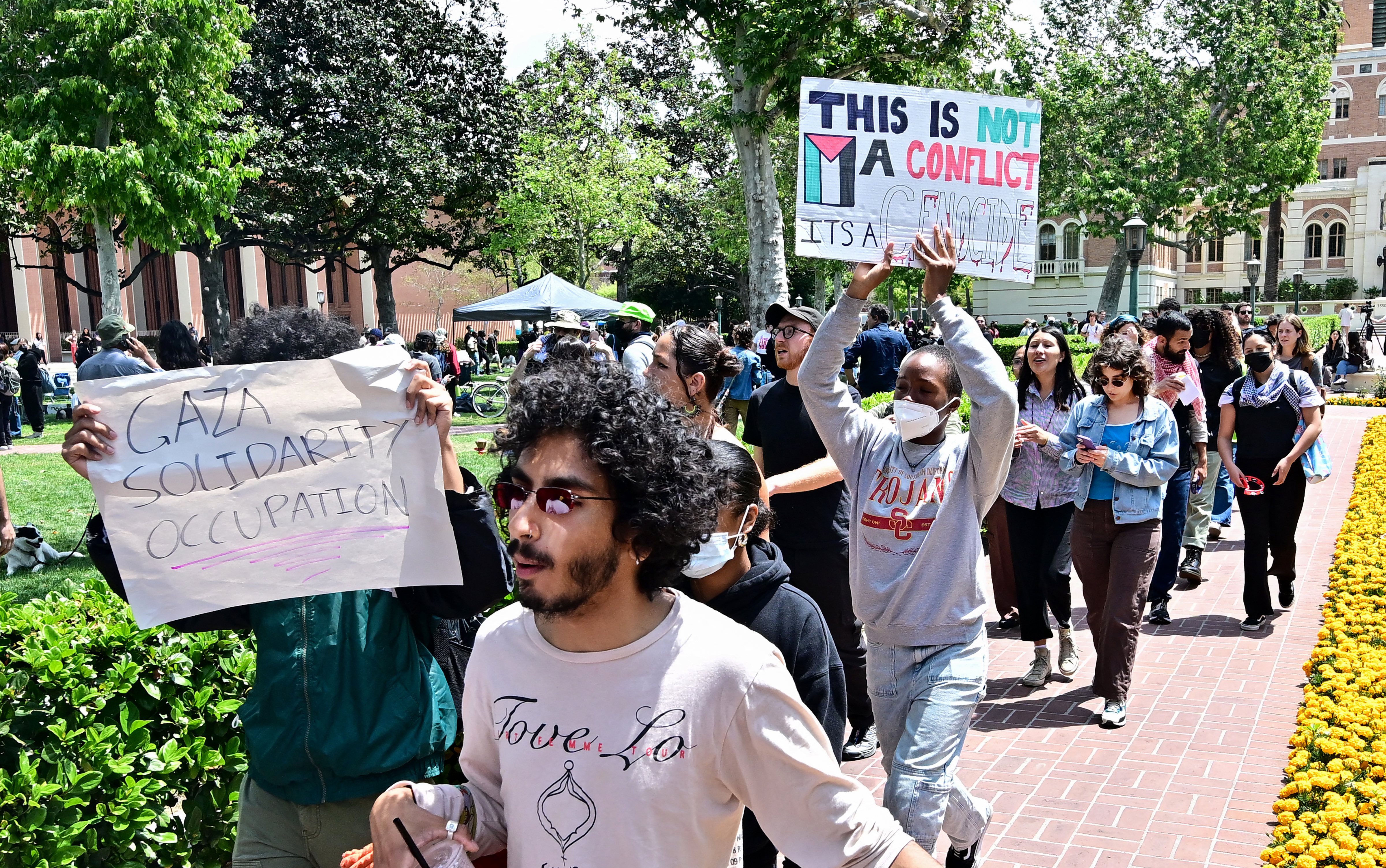
USC offering online class options amid campus protest

Bicyclist killed in rollover crash following police pursuit in South LA
And yet, while Black artists take center stage, he says there are not enough in corner offices.
“It’s about who controls this culture,” Dr. Boyd said. “And it's about people consuming this culture understanding that just because they like the music or they like the culture, doesn’t mean they get a sort of free pass on other issues.”
Much of the world was horrified by the sight of George Floyd dying beneath the knee of a Minneapolis police officer, but still, Dr. Boyd points out that the violence has not stopped.
“A guy puts his knee on a man’s neck and we watch that on camera as though it’s some kind of snuff film. This is not the first time it happens… What does it take? I mean it’s not asking a lot to say police should not be able to get away with doing this. That’s not asking much at all,” he said.
Demonstrations erupted around the world. Protesters took to the streets in all 50 states calling for an end to police brutality. But Dr. Boyd cautions that progress is “relative” and we have only gone from zero to one. And we need to go much farther.
“I don’t get the luxury of ignoring racism until there is another cellphone video of somebody being killed. That is not a luxury afforded to me. This is something that defines my life and existence 24/7,” Dr. Boyd said. “This is what it means to be a Black man in America and it didn’t just start last week.”
This article tagged under:

In Conversation with Dr. Todd Boyd, the ‘Notorious PhD’
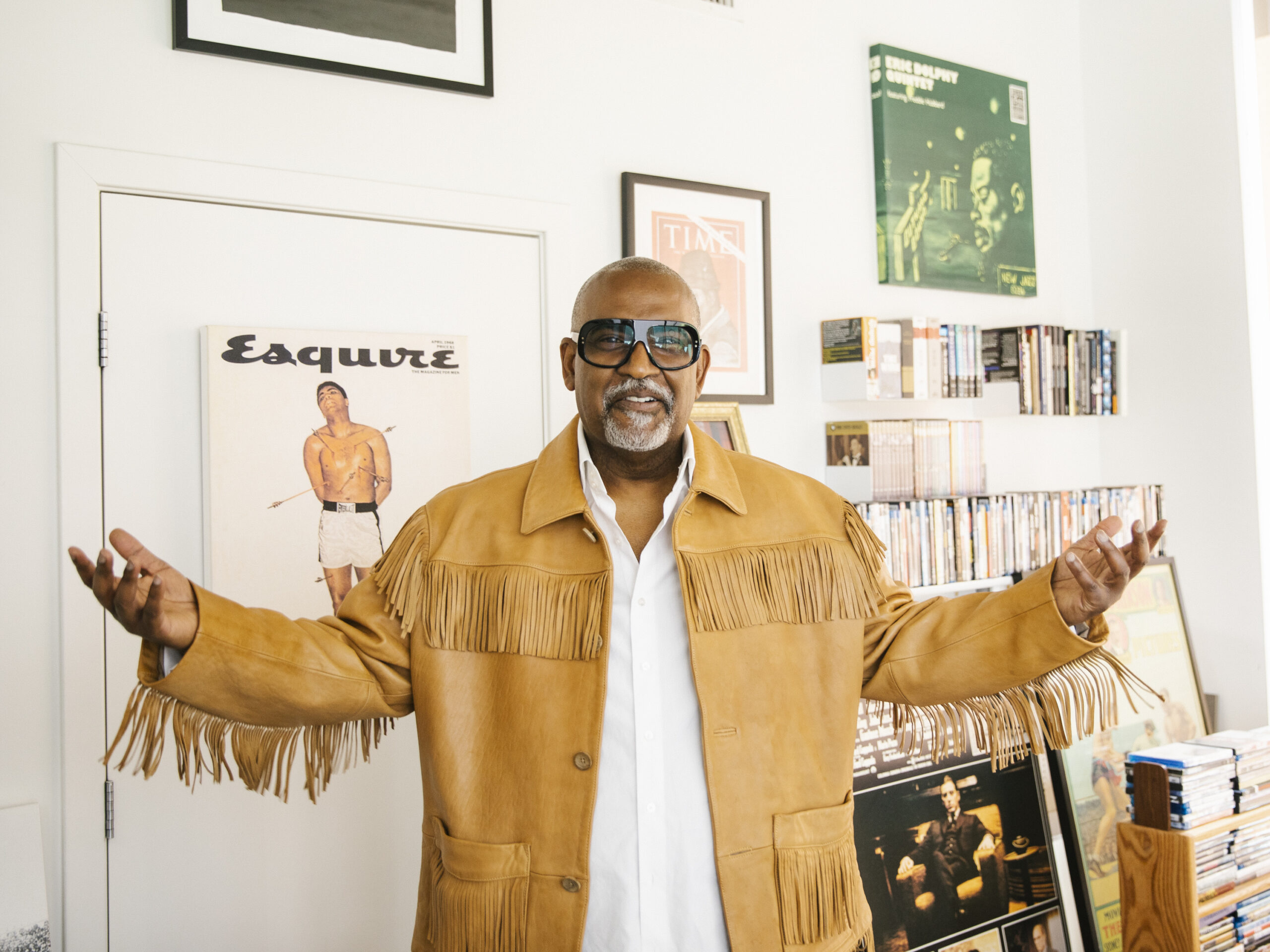
ㅤㅤㅤㅤㅤㅤㅤㅤㅤㅤㅤㅤㅤㅤㅤㅤㅤㅤㅤㅤㅤㅤㅤㅤㅤㅤㅤㅤㅤㅤㅤㅤㅤㅤㅤㅤㅤ
Cutler and Gross’ In Conversation series celebrates the brand’s customers and their personal style. We look closer at their work and how they ended up in their individual creative field, what their specific craft looks like, the style journey they are on, and how their Cutler and Gross frames fit in with their unique aesthetic.
Interview by David Hellqvist | Photography by Nathaniel Wood
Have you got a nickname? Do you like it or is a derogatory name still lingering from misspent university days? Or maybe it’s just an easier way of saying a complicated name that owes too much to an exotic family lineage? Yes, not everyone gets to be as lucky as Dr. Todd Boyd. He goes by the name of the Notorious PhD. Exactly.
Calling in from Los Angeles, the Notorious PhD is a Professor of Cinema and Media Studies at the USC School of Cinematic Arts (which explains the PhD) who’s work over the last three decades has been focused on mapping the role of black culture – often through the medium of hip-hop (hence the Notorious) – in American society. He’s been busy because everywhere you look – art, politics, fashion, literature, other forms of music and even the way we talk and text – hip-hop culture has permeated the discourse.
Gaining his PhD and arriving in LA just after the Rodney King riots of 1992 set the tone for Dr. Boyd’s tenure, highlighting the at times fragile relationship between white and black America. But beyond moments like that – and that was not too be the last one sadly – the Notorious PhD’s work is about connecting the dots between individual black creatives working in various art disciplines and the rich cultural fabric that they have helped to spin in the united patchwork of America of the 21 st century.
“I’m someone who grew up in hip-hop culture, so in addition to writing and doing research about it, lecturing about it, this is my life.” Dr. Todd boyd
How would you describe your work to a stranger?
When people ask, I determine my response based on who’s asking the questions and the context: I could say I’m a professor which I am, I could say I’m a writer, which I am, I could say I’m a commentator which I am. I wear a lot of hats. I’d describe myself as a creative intellectual. Duke Ellington used to talk about transcending category, meaning of course that you couldn’t reduce something down to any one thing, it’s not that simple. I think I have always thought about my work in that way: it’s beyond category, it’s multiple things. In basketball these days, if you are a great defender, you can guard all five positions on the floor, and they say you can guard ‘one through five’. I like to think about my work that way, I can guard one through five, and depending on the context the day of the week I can embody any of those descriptions I gave you.
When and how did you get your nickname, the Notorious PhD?
Back in the 90s I was one of the first academics/professors/intellectuals in the country to bring hip-hop into the American university system. I was the first one to do this who had actually come out of the culture though. The LA Times did a feature on me, they titled it ‘Notorious PhD’. I dig Biggie Smalls – Rest in Peace – and I thought the title fit so I just ran with it. Some people say to me, ‘You named yourself Notorious PhD’. But you’ve got to understand that when I grew up you couldn’t give yourself a name, somebody had to bestow it upon you. I’m someone who grew up in hip-hop culture, so in addition to writing and doing research about it, lecturing about it, this is my life, this is who I am …as I say, I come out of the culture. So, when talking about hip-hop I thought, ‘Well, I can’t just talk about it, I have to embody it. I have to represent it.’
Would you say there’s any overlap between what you do and a hip-hop?
Yeah, there’s a certain performance aspect to my work. Rappers get credit for spitting sixteen bars, as they say. Well, I don’t use notes when I lecture but I don’t do sixteen bars, I go two hours without notes. The way I lecture, the way I approach my craft, is a lot like a rapper, or a jazz musician. But I’m an intellectual and I’m in a university as opposed to a recording studio, and so the persona is developed around the things I would say, but also my own presence, my own visibility, my own identity … and style is a big part of it, fashion has always been a big part of it.
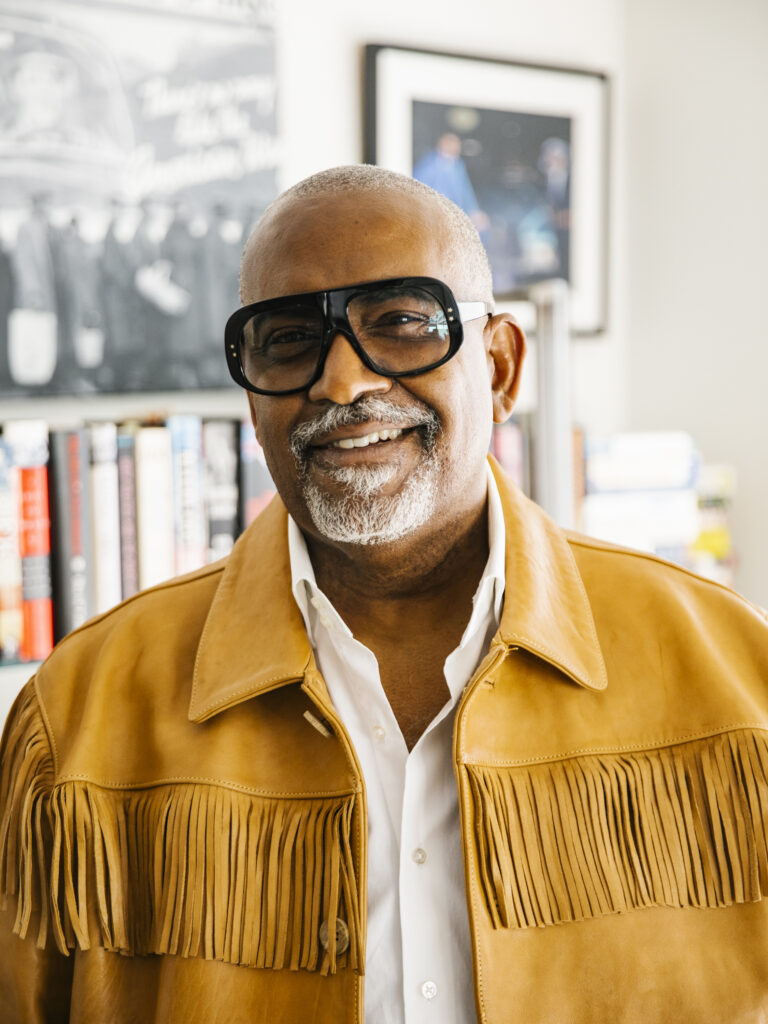
What can be said of hip-hop’s cultural role in American society?
A lot of people are pointing to hip-hop’s 50 th anniversary this year and how hip-hop has transformed American culture over the last five decades. When they hear hip-hop, people think of rap music but rap music’s only one part of it because hip-hop’s always been a cultural movement, but for some time now rap music has been the most popular music in the world, influencing other styles of music. And the same can be said for film, television, sports, art and fashion where hip-hop has had a profound effect … even in the White House! The most profound development to happen in America is the slave trade and so the impact of slavery and the descendants of slaves on American society and culture is enormous. What hip-hop represents is a sort of historical juncture when that influence has, over time, been able to become front and centre. Of course, for a long time black culture was marginalised in America. That’s not the case anymore, certainly not to the same extent. Hip-hop has been the engine behind moving the influence of black culture into the mainstream.
What inspired you yourself growing up as a black man in America?
The biggest cultural influences I had were in the 1970s, that was the era when hip-hop emerged. But it was developing underground, it was developing away from the public eye. Simultaneously, though, there were other developments out in the open: the Blaxploitation era in Hollywood, people like boxer Muhammad Ali and comedian Richard Pryor, emerging black politicians becoming big city mayors. The 1970s is really the first decade when you have, in essence, a free black nation because of the passage of the Civil Rights Act, and the Voting Rights Act in the 60s.
“I don’t use notes when I lecture … the way I lecture, the way I approach my craft, is a lot like a rapper.” Dr. Todd boyD
You moved to Los Angeles in 1992; what was the city’s cultural landscape like then?
It was just a really pivotal time; the culture was popping. I got there just after the Rodney King riots but one of the things hip-hop would do was to provide commentary about what was going on at the time, people were listening to Ice Cube or NWA before the riots. Later Dr. Dre and Snoop Dogg blew up, Arsenio Hall had a very popular talk show with rappers appearing, Michael Jordan was at the top of his game as a basketball player. I think it all inspired me in the sense that it kind of added a context to what I was doing. It made what I was doing seem much more important, and much more urgent, because of what was happening in the streets. At the time there were buildings that had been visibly burned during the riots very close to USCs campus, so it was very tangible – it was not something you just watched on television, it was real.
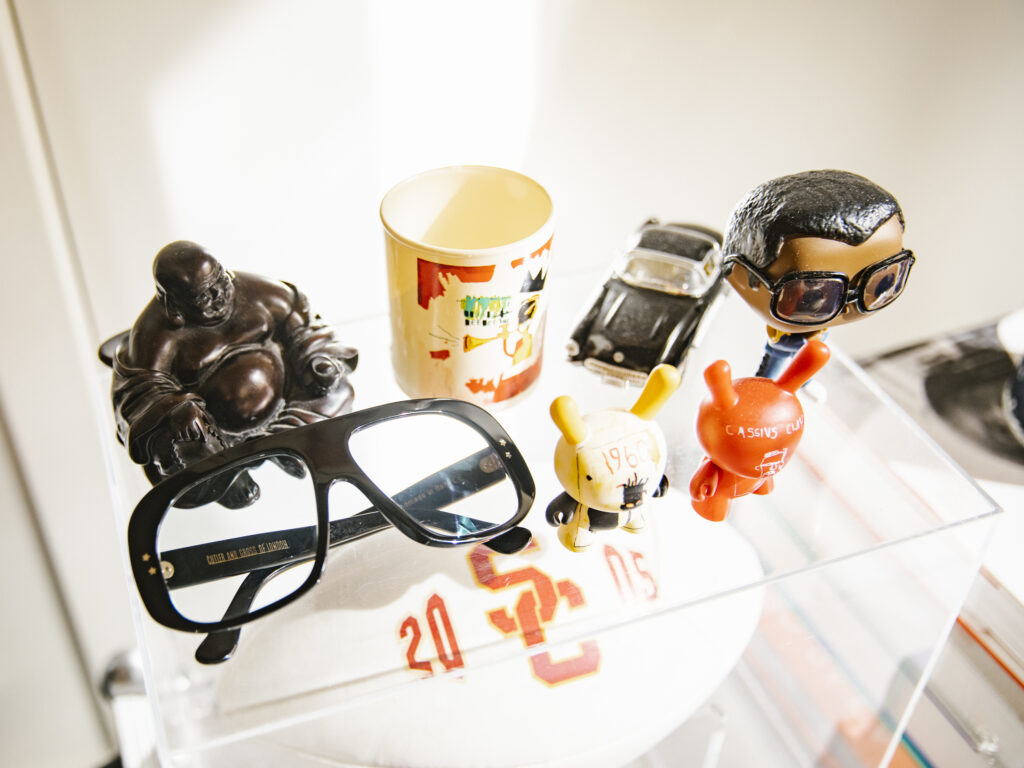
We talk a lot about music, film and fashion but where does sports fit into the equation?
Sports is very creative; I mean the greatest athletes are creators. Muhammad Ali was incredibly creative, as a boxer, as a persona. I don’t know that you get to be considered a great athlete without a certain level of creativity. But sports, particularly basketball, has always been a part of hip-hop culture. There are rappers rhyming about basketball from the early 80s going forward, even before Kurtis Blow. A lot of people don’t think about it in the same creative way as they think about, say, art, film, or music, but to me it’s part of this larger cultural movement because in sports it’s about winning and losing, and if you take that as a metaphor you can apply it to other aspects of life. There’s this story about Barack Obama when he gave the speech that introduced him to the country at the Democratic National Convention in 2004, and before doing the speech he goes, ‘I got this, like I’m LeBron’ … he’s referencing LeBron James who was a young player in the NBA at the time. You know, LeBron represents success, if you want to make a point about ‘making it’, what better example to use?
“People are going to notice your frames, they’re a way of standing out and giving yourself an identity and a persona.” Dr. TODD BOYD
Fashion seems important to you; how do you look at style in the context of what you do for a living? And where does your frames fit into that?
Fashion, to me, is like personal expression, it’s not just about wearing clothes, I mean I’ve studied the history of fashion, many of those things that inspired me in the 70s: magazine covers, magazine photographs, album covers, movie posters, all those cultural representations, I would look at what people were wearing how they presented themselves. In the 70s, before contact lenses got big, a lot of people wore glasses, and the style of those glasses is something I took note of, I didn’t need glasses growing up, but I would go buy fake glasses and wear them just because I liked the look. And at some point, father time caught up with me and I actually needed glasses, and for me frames are just another style accessory. People are going to notice your frames; they’re going to remember them. So they’re a way of standing out and giving yourself an identity and a persona, but it’s also part of personal creative expression which to me is my personal art that the world can see. I’m not a painter, but what I can do with fashion is creative in the same way that an artist goes about creating their work. And I think glasses are central to it. Glasses serve a purpose; I certainly need them to see but when you wear glasses that give you a look it’s just a great opportunity to represent yourself to the world.
How did you come across Cutler and Gross, and what do you like about the brand?
I was in New York walking through Soho, and I was looking through the window of the Cutler and Gross store and decided to go in as they had all these really cool frames on display. But what really caught my attention was the vintage Cutler frames from the 70s and 80s. And that’s my thing, retro and vintage styles that doesn’t look like everything you might see in contemporary society. I eventually bought my first pair which were the ones I wore in the ‘The Last Dance’ documentary. When I was growing up you didn’t want to be like everybody else, you wanted to be different, you would go to the complete other side of the room just to not be part of the crowd, so I like Cutler and Gross because they don’t look like everything else. I want something that’s distinct, and Cutler is perfect for that!
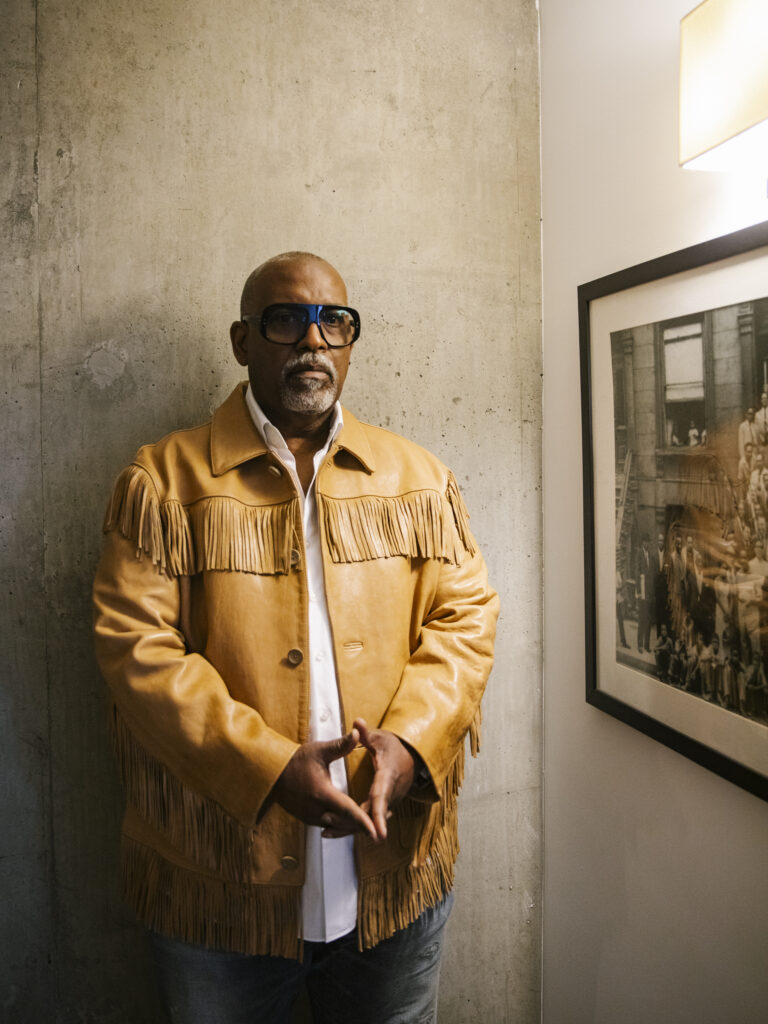
@notoriousphd
Similar Bestselling Styles
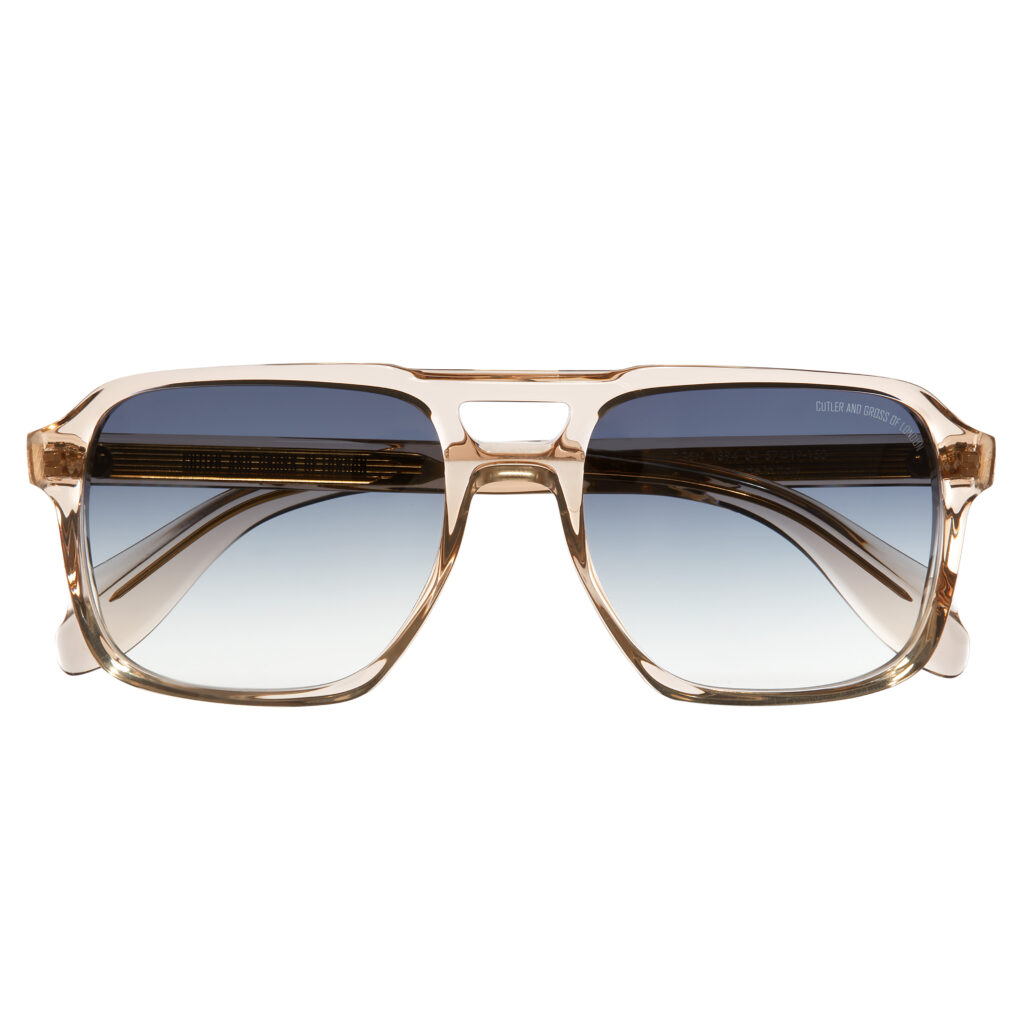
Blue Monday: The enduring legacy of New Order’s era-defining anthem
The aurum collection, leave a reply cancel reply.
Save my name, email, and website in this browser for the next time I comment.
Your email address will not be published.
- Cast & crew
The Notorious PhD: A Level Playing Field, an Interview with Todd Boyd
- Podcast Episode

Todd Boyd, aka "Notorious Ph.D." is a Professor of Cinema and Media Studies at USC. His critiques of Hip Hop and pop culture have guided a generation into a deeper understanding of the anato... Read all Todd Boyd, aka "Notorious Ph.D." is a Professor of Cinema and Media Studies at USC. His critiques of Hip Hop and pop culture have guided a generation into a deeper understanding of the anatomy of the black experience. Adrian Younge and Todd Boyd discuss Defining American, Racial ... Read all Todd Boyd, aka "Notorious Ph.D." is a Professor of Cinema and Media Studies at USC. His critiques of Hip Hop and pop culture have guided a generation into a deeper understanding of the anatomy of the black experience. Adrian Younge and Todd Boyd discuss Defining American, Racial Politics and the revolution of revisionist history occurring.
- Adrian Younge

- Self - Guest
- Self - Host
- All cast & crew
- Production, box office & more at IMDbPro
User reviews
- March 29, 2021 (United States)
- Amazon Music
- See more company credits at IMDbPro
Technical specs
- Runtime 40 minutes
Related news
Contribute to this page.
- IMDb Answers: Help fill gaps in our data
- Learn more about contributing
More to explore

Recently viewed
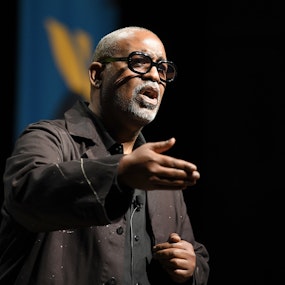
Dr. Todd Boyd
Author, cultural commentator, producer, and professor
Dr. Todd Boyd is Price Chair for the Study of Race and Popular Culture and Professor of Cinema and Media Studies at USC. A media commentator, author, producer, and consultant, Dr. Boyd has appeared in documentaries such as the award winning, The Last Dance (ESPN, 2020), winner of the 2020 Emmy Award for Outstanding Documentary or Nonfiction Series and Twenty Feet From Stardom (2013) winner of the 2014 Academy Award for Best Documentary Feature and the 2015 Grammy Award for Best Music Film, Muhammed Ali (PBS, 2021), and many more. He has written over one hundred articles, essays, reviews, and other forms of commentary, with his work having appeared in the New York Times, Los Angeles Times, The Guardian, ESPN, and Chicago Tribune, among other publications. Dr. Boyd’s seven books include, Young Black Rich and Famous, The New H.N.I.C., Am I Black Enough For You?, and The Notorious Ph.D's Guide to the Super Fly 70s. His eighth book, Rapper’s Deluxe: How Hip Hop Made the World, was published by Phaidon in February 2024.
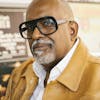
The Notorious PhD: Dr. Todd Boyd
Explore the depths of hip-hop's transformative power with Dr. Todd Boyd, the "Notorious PhD," as he takes us on a 50-year journey through the genre's history in his latest book, "Rappers Deluxe: How Hip Hop Made the World." A...
Ep. 141 - Dr. Todd Boyd - The Notorious PhD on Race, Sport and Popular Culture The All Things Risk Podcast
- Personal Journals
Today, we have a fascinating conversation about race and popular culture, particularly around what’s happened recently in the United States following the murder of George Floyd and the protests and uprisings that have followed. As you will hear, this event follows an unfortunate pattern and history that sadly, spans decades. I wanted to explore them within some historical and cultural context. So, I invited Dr. Todd Boyd, aka “The Notorious PhD” onto the podcast – and he graciously accepted. If you are new to Dr. Boyd, he is the Katherine and Frank Price Chair for the Study of Race and Popular Culture at the University of Southern California in Los Angeles. Dr. Boyd is an author, media commentator, producer and scholar. The has appeared in numerous documentaries, most recently in the popular Netflix series “The Last Dance” which was about Michael Jordan’s last season with the Chicago Bulls. He wrote and produced the cult classic film “The Wood” and produced the Netflix documentary “At All Costs”. Dr. Boyd’s books include The Notorious PhD’s Guide to the Super Fly 1970s, Young, Black, Rich and Famous, The New H.N.I.C. and Am I Black Enough For You? He has written articles for the New York Times, Los Angeles Times and the Guardian, amongst others. Dr. Boyd is a pioneer. He developed a new field of study in the 1990s on Hip Hop culture. His work makes connections across sport, cinema, music, fashion, art and politics. This not just a conversation about race in the USA – and by extension many other countries. It is also a conversation about the importance of popular culture and how culture does more than merely reflect society – it can help shape it in unseen and often uncertain ways. Show notes: Dr. Todd Boyd Dr. Boyd on Twitter Dr. Boyd on Instagram Recent piece by Dr. Boyd in the The Guardian on racism in Hollywood 1943 Detroit Race Riot 1967 Detroit Race Riot The Watts Riot / Watts Rebellion Rodney King Riot Ali – Liston II fight Yo! MTV Raps Colin Kaepernick and Roger Goodell 1968 Olympics Black Power Salute Jim Brown Craig Hodges Jackie Robinson Mahmoud Abdul-Rauf The Last Dance Isiah Thomas and the Dennis Rodman comments on Larry Bird The Black Power Mixtape 1967-1975 Stokely Carmichael Angela Davis Eryka Badu _ _ _ _ _ _ _ _ _ Like what you heard? Subscribe and/or leave a rating and review on Apple Podcasts: http://apple.co/1PjLmK Subscribe on Stitcher: http://www.stitcher.com/podcast/all-things-risk/the-all-things-risk-podcast Subscribe on Soundcloud: https://soundcloud.com/ben-cattaneo Follow the podcast on Twitter: https://twitter.com/RiskThings Drop us a note: [email protected] _ _ _ _ _ _ _ _ _ _ _ _ _ _ _ Our free course module “How to Set Up Any Decision for Success” from our upcoming course How to Make Decisions With Calm and Confidence
- Episode Website
- More Episodes
- All rights reserved

IMAGES
VIDEO
COMMENTS
March 12, 2014 9:44 PM PT. To many hip-hop heads and pop-culture junkies, Todd Boyd is recognized as a renowned speaker, an in-demand television commentator and a critically acclaimed author ...
Todd Boyd, aka "Notorious Ph.D.", is the Katherine and Frank Price Endowed Chair for the Study of Race & Popular Culture and Professor of Cinema and Media Studies in the USC School of Cinematic Arts. Boyd is a media commentator, author, producer, consultant and scholar. He is considered an expert on American popular culture and is known for his pioneering work on cinema, media, hip hop culture ...
In his recent book, "Rapper's Deluxe: How Hip Hop Made The World," Professor Boyd - also known as the Notorious PhD - traces the genre over the last 50 years from its humble beginnings in the Bronx, to its west coast ascent in the 1990s and through to the election of President Obama and the rise of the Black Lives Matter movement.
The Notorious PhD, Dr. Todd Boyd is a Professor of cinema and media studies, a renowned speaker, an in-demand television commentator and documentarian, a critically acclaimed author, and the one and only Hip-Hop professor at the University of Southern California. #drtoddboyd #hiphop #hiphopculture #notoriousphd #black #toddboyd
The Notorious PhD: Dr. Todd Boyd | Podcast Audio || The CultureThe Notorious PhD: Dr. Todd BoydPhD: Dr. Todd BoydPodcast AudioTodd BoydAudioPodcastThe Cultur...
An Amazon Original Podcast Series:https://music.amazon.com/podcasts/8e5050d8-e1df-46b4-b198-82f02d54302e/Invisible-Blackness-with-Adrian-YoungeTodd Boyd, aka...
Notorious PhD. By Bob Baker. March 10, 2003 12 AM PT. Times Staff Writer. There are times when Todd Boyd's persona -- the tenured professor as hip-hop artist -- is irresistible. There he is, 6 ...
about the notorious phd's guide to the super fly '70s. this richly informative journey into the 1970s captures the explosive power of the black performers, musicians, filmmakers, and athletes who ignited a cultural revolution. what singer/songwriter was the first white performer to appear on soul train?
Notorious PhD, nickname of the author, has don a great job making connections with the 70s and most recent artists. There are a lot of references of hip hop artists who have deep roots and make tribute to the 70s like Dr. Dre, Public Enemy, P. Diddy, Biggie, Mary J. Blige and so forth.
In his recent book, "Rapper's Deluxe: How Hip Hop Made The World," Professor Boyd - also known as the Notorious PhD - traces the genre over the last 50 years from its humble beginnings in the Bronx, to its west coast ascent in the 1990s and through to the election of President Obama and the rise of the Black Lives Matter movement. We.
TODD BOYD, Ph.D. (aka The Notorious Ph.D.) is a critically acclaimed author and commentator who has appeared on CNN, NPR, Good Morning America, the CBS Evening News, NBC Nightly News, and other programs and has written pieces for the New York Times and the Los Angeles Times.Dr. Boyd has done commentary for the DVDs Super Fly, Uptown Saturday Night and The Mack.
The Notorious PhD, Dr. Todd Boyd is a Professor of cinema and media studies, a renowned speaker, an in-demand television commentator and documentarian, a critically acclaimed author, and the one and only Hip-Hop professor at the University of Southern California. #drtoddboyd #hiphop #hiphopculture #notoriousphd #black #toddboyd Topics Discussed:
Explore the depths of hip-hop's transformative power with Dr. Todd Boyd, the "Notorious PhD," as he takes us on a 50-year journey through the genre's history in his latest book, "Rappers Deluxe: How Hip Hop Made the World." As a pioneer in the academic study of hip-hop and a true devotee of the cult…
The author and producer, also known as the "Notorious PhD," was recently seen in "The Last Dance" on Netflix and appeared in the Oscar-winning documentary "Twenty Feet From Stardom ...
In captivating episode # 152 of the podcast, we're graced by the presence of Dr. Todd Boyd, also known as the "Notorious PhD," who brings his profound insights into the world of hip hop. Dr. Boyd, a distinguished professor and a leading authority on the subject, embarks on a discussion that delves into the remarkable history of hip hop, its influence on politics, and its enduring legacy in ...
Yes, not everyone gets to be as lucky as Dr. Todd Boyd. He goes by the name of the Notorious PhD. Exactly. Calling in from Los Angeles, the Notorious PhD is a Professor of Cinema and Media Studies at the USC School of Cinematic Arts (which explains the PhD) who's work over the last three decades has been focused on mapping the role of black ...
The Notorious PhD: A Level Playing Field, an Interview with Todd Boyd: With Todd Boyd, Adrian Younge. Todd Boyd, aka "Notorious Ph.D." is a Professor of Cinema and Media Studies at USC. His critiques of Hip Hop and pop culture have guided a generation into a deeper understanding of the anatomy of the black experience. Adrian Younge and Todd Boyd discuss Defining American, Racial Politics and ...
The Notorious PhD, Dr. Todd Boyd is a Professor of cinema and media studies, a renowned speaker, an in-demand television commentator and documentarian, a critically acclaimed author, and the one and only Hip-Hop professor at the University of Southern California. #drtoddboyd #hiphop #hiphopculture #notoriousphd #black #toddboyd
Dr. Todd Boyd is Price Chair for the Study of Race and Popular Culture and Professor of Cinema and Media Studies at USC. A media commentator, author, producer, and consultant, Dr. Boyd has appeared in documentaries such as the award winning, The Last Dance (ESPN, 2020), winner of the 2020 Emmy Award for Outstanding Documentary or Nonfiction Series and Twenty Feet From Stardom (2013) winner of ...
The Notorious PhD: Dr. Todd Boyd | Episode 152 , Podcast || The CultureThe Notorious PhD: Dr. Todd BoydEpisode 152PhD: Dr. Todd BoydTodd BoydPodcastThe Cultu...
The Notorious PhD, Dr. Todd Boyd is a Professor of cinema and media studies, a renowned speaker, an in-demand television commentator and documentarian, a critically acclaimed author, and the one and only Hip-Hop professor at the University of Southern California. #drtoddboyd #hiphop #hiphopculture #notoriousphd #black #toddboyd
Show The All Things Risk Podcast, Ep Ep. 141 - Dr. Todd Boyd - The Notorious PhD on Race, Sport and Popular Culture - 24 Jul 2020
There's an issue and the page could not be loaded. Reload page. 5,025 Followers, 2,804 Following, 3,497 Posts - See Instagram photos and videos from Dr. Todd Boyd (@notoriousphd)